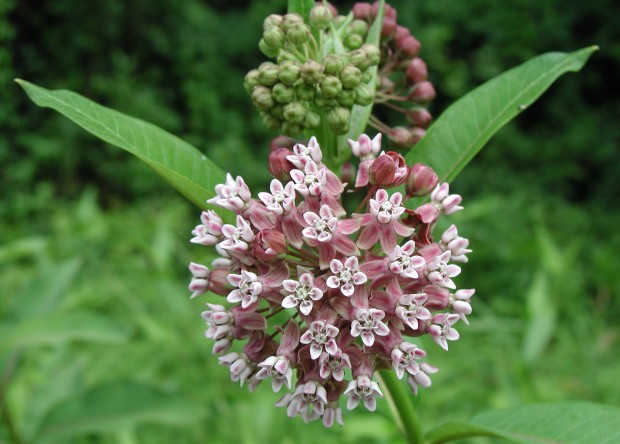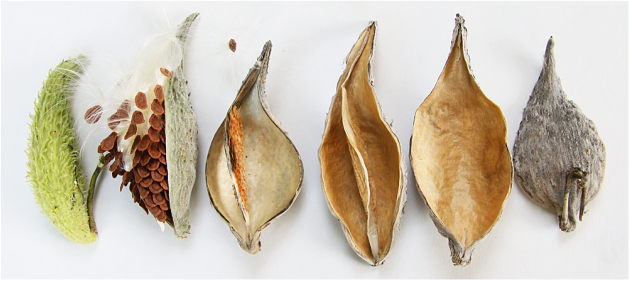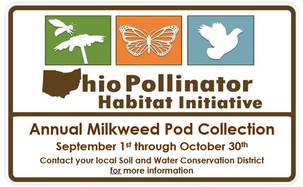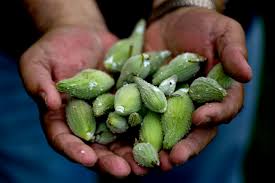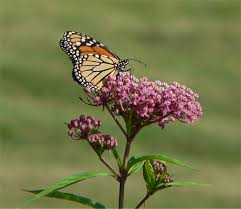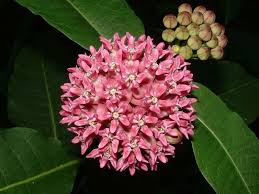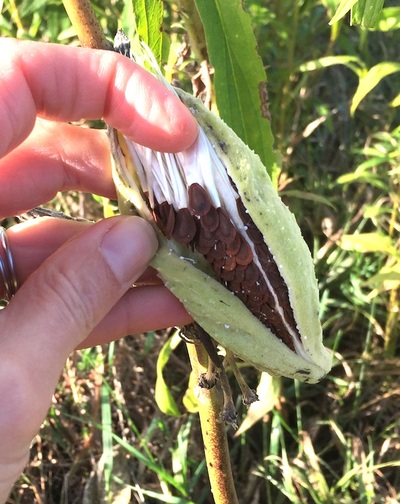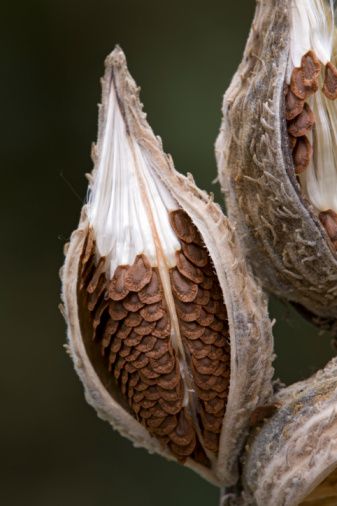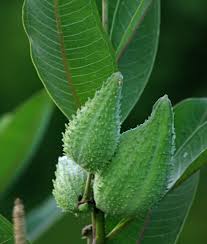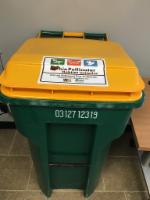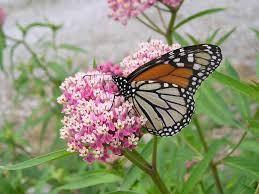 The iconic monarch butterfly, which has long been a welcome sight in backyard gardens across Ohio, faces many threats. In Ohio, one way we can ensure future generations of monarch butterflies continue to visit flower gardens throughout our state is by protecting native milkweed plants. Every year in the fall, monarch butterflies across the eastern U.S. and Canada begin a 3,000-mile-long journey down to wintering grounds in Mexico. In the spring, these same butterflies head back north, and delight us with their presence once again. However, this amazing journey would not be possible without milkweed, a group of plants critical to the survival of the monarch butterfly. As butterflies, monarchs can feed on the nectar of a number of different flowering plants, but as caterpillars, monarchs are entirely dependent on the availability of milkweed. Monarch caterpillars hatch from eggs laid on milkweed plants and feed on the leaves of the plant as they grow. If these plants are mowed, removed, or sprayed with pesticides or herbicides, the caterpillars will not survive. Protecting these plants, especially during the egg-laying period from July through September, helps both monarch butterflies and caterpillars continue their life cycle and ultimately results in more monarch butterflies that can complete their journey to Mexico and back. In the past, milkweed was viewed as a toxic weed. Today, we know that milkweed is a very important group of native plants that helps support many species of wildlife, including monarch butterflies. Learn more about ways you can help ensure these beautiful butterflies are around for generations to come by visiting the Monarch Joint Venture. By: Ohio Department of Natural Resources - Division of Wildlife
0 Comments
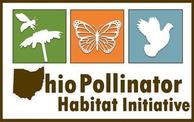 The Ohio Pollinator Habitat Initiative from last fall resulted in approximately 2,500 gallons of milkweed pods collected throughout the state. Thank you to everyone who contributed to this effort in Warren County! Over the winter the milkweed pods were delivered to Department of Corrections Institutions where the seeds were collected from the pods and placed in cold storage. This process improves the germination of the seeds. Once this process was complete, the seeds were distributed back to Warren County and to the other districts who participated in the initiative. For those with a packet, follow the planting guide below: Planting time: February - April OR September - November If you wish to plant the seed in the spring, you will need to stratify the seed. To stratify the seed, place a thin layer of seed between damp paper towels and place it in a refrigerator for approximately 40 days. If you plant the seeds in the fall, seed stratification is not necessary. Site selection: Sunny spot with well-drained soil. Prepare soil: Remove weeds and rake to 1'' deep. Spread seeds: Uniformly cover the cleared area. Press seeds: Walk over newly planted area. Do not cover seeds any deeper than 1/16''. Some of the seeds will remain visible. Water: Regularly for 4-6 weeks for germination. Watch: Reduce watering at 2'' tall, unless the seedlings seem stressed. Here at Warren SWCD, we began hearing rumblings of a new conservation effort sweeping the country in late 2015. In November, we heard that the U.S. Department of Agriculture (USDA) would lead a 10 state effort to help provide food and habitat for monarch butterflies. Their plan was to provide funding for agricultural producers to provide this food and habitat through established programs such as EQIP, WRP and CSP. Funding would reach a 10 state region and provide approximately $4 million in aid - Ohio being one of those states! Read more about this initial effort HERE. Reading about this important conservation movement was exciting, but what really got us excited was what we started to hear on a local level! Taking cues from our national counterparts, Ohio wanted to make an even bigger difference! And so the Ohio Pollinator Habitat Initiative was born.... (Click for the OPHI Website!) OPHI Mission Statement: "To improve and create pollinator habitat in the state of Ohio, as well as raise awareness for all Ohioans regarding the importance of pollinators." The OPHI's reason for being is even more profound and important: "Pollinator wildlife species such as bees and butterflies are in trouble. Pollinators have been suffering from population decline primarily due to loss of habitat which provides pollen, nectar, and host plants which are vital to the survival of most pollinators. Over the past ten years, there have been several species of pollinators that have vanished from Ohio. More recently, monarch butterfly populations have plummeted to alarmingly low levels. Poor honeybee health is a critical issue also linked to the decline of pollinator habitat. These pollinators are responsible for helping produce about one third of the world-wide food supply for people by simply moving pollen from plant to plant resulting in pollination, which produces apples, almonds, and many other fruits and vegetables. Here in Ohio, the Ohio Pollinator Habitat Initiative was started to inform citizens, landowners, farmers, and government agencies of the importance of pollinators and the habitat they need to survive. Members of the initiative are the core professionals that provide education, outreach, and technical assistance to all that have an interest in pollinators and protecting our food supply." Sponsors and partnerships grew as the Initiative picked up steam. The initiative has many events, programs and collected information. One of the big programs is the milkweed pod collection effort. This is where Warren SWCD and in turn YOU play a role! Our office is an official collection location. Collect common milkweed seed pods and bring them to us! The following is the information about the seed pod collection program. Collection Dates: September 1 - October 30, 2016 Click below to learn how to collect common milkweed seed pods.
Learn more by visiting our webpage detailing the Ohio Pollinator Habitat Initiative! ~ Molly Conley, Natural Resource Engineer
|
Details
Warren County SWCD Staff BlogA blog to keep you informed on all the latest news at Warren County SWCD and in the conservation world. Archives
May 2024
Categories
All
|
|
|
Contact:PHONE: (513) 695 - 1337
EMAIL: [email protected] HOURS: Monday - Friday 7:30am - 4:00pm (except holidays) Connect:Warren County Soil & Water Conservation District Copyright © 2016
Warren SWCD Privacy Notice. Emails are serviced by Constant Contact. Constant Contact's Privacy Notice. |
